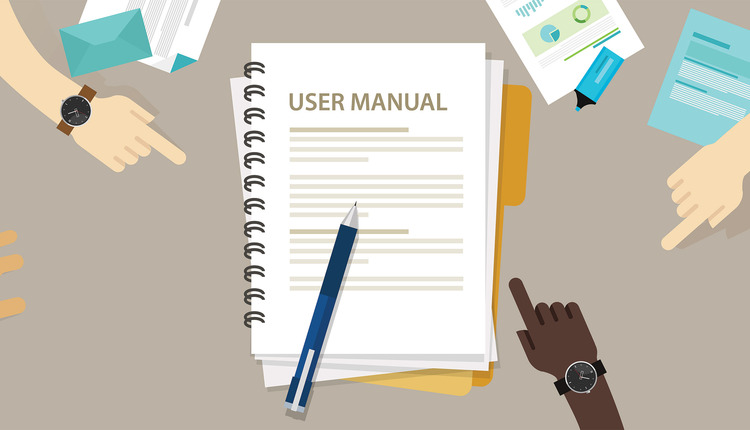"A rose by any other name would smell as sweet.” William Shakespeare's words from his iconic play Romeo and Juliet could sum up the proposed name change for the USPS’s Ground Services, including First Class Package Services (FCPS), truly a polished jewel from their “Sweet” of services.
FCPS is one of three Ground service offerings that are merging under the new proposed brand “USPS Ground Advantage.” The other two are Parcel Select Ground and Parcel Select Ground Cubic, introduced during last July’s General Rate Increase (GRI). The new service will be a two-to-five day full network service with ounce-based, pound, and cubic pricing options. The Postal Regulatory Committee likely will approve the changes since there is no impact to service or cost. USPS implementation is expected with the foreshadowed July GRI. Yes, another price increase; for me, the question is, will 2023 see a third GRI (think peak surcharge) in October like last year?
Last year, FCPS service standards were changed, with the longer/outer zones no longer hitching rides on commercial flights and instead leveraging their massive ground network. FCPS has little competition, other than itself, as workshare partners leverage the USPS for final-mile delivery using Parcel Select workshare incentives. This pits the USPS Ground Network against private industry, the consolidators. Dropping faster transit options for FCPS created a hole in USPS services that is filled by private competition.
Some clients need the faster two-to-three-day transit times, but don’t want to pay for Priority Mail’s pound-based rates to get it. There is one consolidator that has provided ounce-based two-to-three-day service for quite some time successfully while matching or beating commercially discounted prices.
Note: We’ve heard of internal USPS discussions on offering an ounce-based option to two-to-three day Priority Mail, the other half of their most popular “sweet” of services.
The USPS foreshadowed this announcement in the Jan ’23 GRI. What I didn’t consider was the changing of the name, which certainly caught me off guard. After some thought, it makes sense that, due to the diminished service standards, the service not be referred to as “First Class.” Even a “Business Class” designation doesn’t fit. “Ground Advantage” touts the benefits of a less expensive alternative, one that is more climate-friendly and reflects the changing values of urgency in the supply chain.
Does it really have to arrive in 2 days? Like the current demise of free return options, consumer values and merchant service offerings are changing, as the memory of pandemic supply chain challenges “ground” us on what’s really important.
During the pandemic, speed was not the issue. Cost wasn’t, either (for larger shippers). Shippers’ focus and goal was to get their packages picked up and delivered. Consumers went to great lengths to source essential goods during rolling lockdowns. Again, it wasn’t speed or cost. Merchants finally wised up, too, with many restricting free returns due to the high cost of restocking, double transit, and packaging costs. With inflation causing consumers to heed discretionary spending, it makes sense to choose more cost-effective options, and “Ground Advantage” is laser-focused on leveraging this trend.
What’s in a name? A product’s name ideally describes the product, services, and benefit. USPS “Ground Advantage” checks all the boxes. Still, I am sad to see the last vestiges of the original service offerings sunsetted: 1st Class, 2nd Class, 3rd Class, and 4th Class.
It’s all about the class. We have to go way back to the formation of the American colonies, Thomas Neale’s patent, and the act of 1711 that established the first “letter” class as opposed to the “packet” class that was essentially a thicker letter with four or more pages. In 1765, British Postal law dictated a faster transit service under the “packet” service using scheduled government transatlantic shipping vs. merchant vessels. Fast forward to today’s announcement, “Ground Advantage” is the latest name for non-letter/flat mail. Need faster service? Choose Priority Mail today.
We need more class: In 1753, Benjamin Franklin, along with the other deputy Postmaster William Hunter, created a special category for newspapers that eventually became 2nd Class (Publications). The Postal Reform Act of 1845 did not formally codify service names, but it established definitions and service subcategories that we still see vestiges of today. The “Private Express Statutes” were also enacted at that time to grant the USPS the exclusive right and access to deliver mail, a monopoly they still enjoy today.
3rd Class mail was established in the early nineteenth century for non-periodical printed matter. This service later became “Bulk Mail,” transitioned to “Standard Mail,” and then to “Marketing Mail,” which it is known as today.
The Mail Classification Act of 1863 simplified the hundreds of pricing variables into the 1st, 2nd and 3rd Class. In 1874, further classification changes by Congress introduced pound-based pricing with contentious changes surrounding Publications and Printed Matter and was not passed until 1879. Seems fast compared to today’s recently passed, snail-paced reform. The ink was not dry on the 2006 Postal Accountability and Enhancement Act when stakeholders began efforts to correct structural obligations for retirement and associated healthcare that took 16 years and a united Congress. Welcome the Postal Service Reform Act of 2022.
As part of the reform Act of 1879, the Post Card subclass of 1st Class was established along with the new 4th Class, known for the longest time as Parcel Post, and today as Parcel Select. 4th Class was designed for merchandise but subject to inspection something both First Class and Priority Mail avoid, after all, class has its privileges.
Goodbye 1st Class (packages), hello Ground Advantage. A “sweet” new service name for an old friend.
Gordon Glazer, CMDSM, CMDSS, MDP, MDC is a Senior Consultant, USPS Specialist at Shipware, an innovative parcel audit and consulting firm that helps volume parcel shippers reduce shipping costs 10%-30%. Gordon is a postal industry veteran with 36 years’ experience and is a sought-after speaker and industry thought leader. He welcomes your questions and comments and can be reached at 858.724.0457 or gordon@shipware.com.
This article originally appeared in the March/April, 2023 issue of Mailing Systems Technology.














